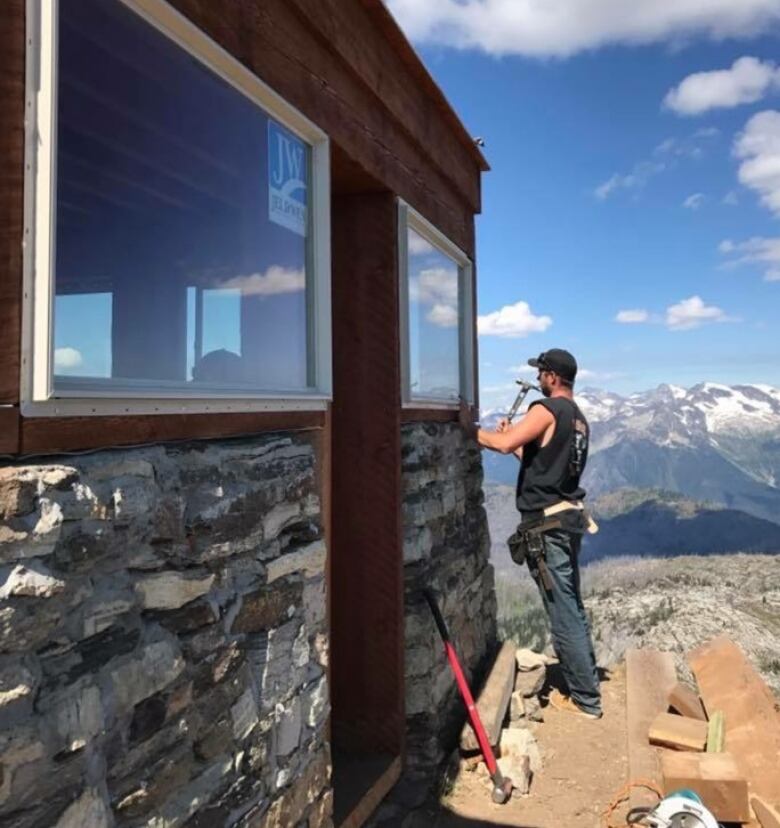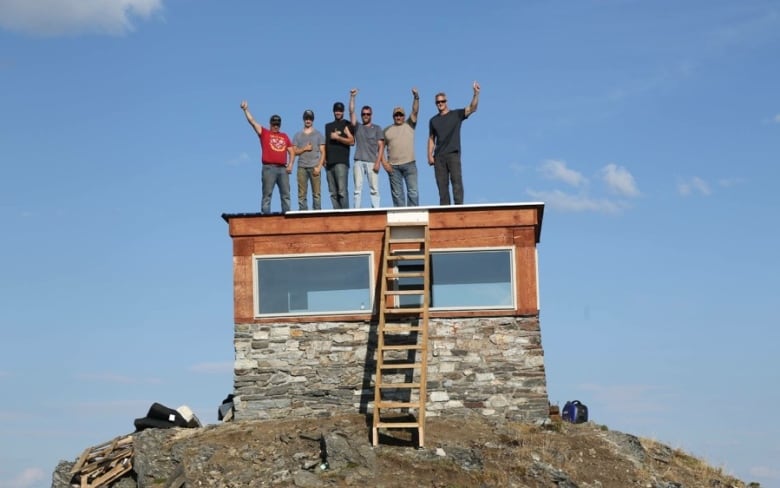Historic alpine cabin restoration project in Shuswap risks being torn down by the province
Tiny mountain cabin on Eagle Pass summit was originally built in the 1920s as a forest fire lookout
A tiny fire lookout cabin perched upon a jagged mountain pass in a remote part of the Shuswap, about 20 kilometres from Sicamous, B.C., is at risk of being torn down, after the provincial government launched an investigation into its potentially unauthorized restoration.
The cabin was built in the 1920s and used as a forestry lookout station by CP Rail, according to Rene St. Onge, a local outdoorsman who has long been interested in the history of the cabin and the men who worked in it.
"I was just enthralled with the location of that cabin," he said.
"It was the fire lookout for the railway, and they lived up there all summer long."
Long abandoned, the cabin slowly succumbed to the elements.

St. Onge dreamed of restoring the cabin, so that it could be enjoyed by locals and tourists who come to the region for its spectacular hiking.
He and a group of friends took their plans to an officer with Front Counter B.C,, a division of the Ministry of Forests, Lands and Natural Resource Operations.
After presenting their idea, the officer gave the group verbal approval to proceed, according to St. Onge.
They raised money online for the project and, two years ago, started flying materials up to the alpine in a helicopter.

"We were able to take up probably 25,000 pounds of material and rebuild the rock wall and design a roof that we are hoping is going to last 100 years," said St. Onge.
In early September, the province ordered the group to stop its work on the cabin.
St. Onge is still unsure what the issue is.
"Apparently, there is a small interest group that is opposed to it and complained to [the Ministry of Forests] and forestry has acted upon it," St. Onge said.
"Here we are with a stop work order and we actually have had a few forestry officials threaten to destroy it, burn it down or tear it down."

The head of the Shuswap Trail Alliance, a non-profit group, which oversees trail restoration work in the region, said his organization had contacted the province about the cabin restoration project, wondering if St. Onge had the proper permits in place, said executive director Phil McIntyre-Paul.
However McIntyre-Paul doesn't think the cabin should be torn down.
"That certainly wouldn't be what we want to see happen. That doesn't really make sense," he said.
A spokesperson with the province says an investigator has been assigned to the case.
"A delegated decision-maker can decide whether the structure is in contravention of [the Forest and Range Practices Act] and would have the authority to order the site left as is, levy a penalty or order remediation of the site."
St. Onge is frustrated the project he has invested so much time and money in is now caught up in bureaucratic red tape.
"We are pretty proud of what we are doing. The cabin is built for everybody in Canada to enjoy and use," he said.